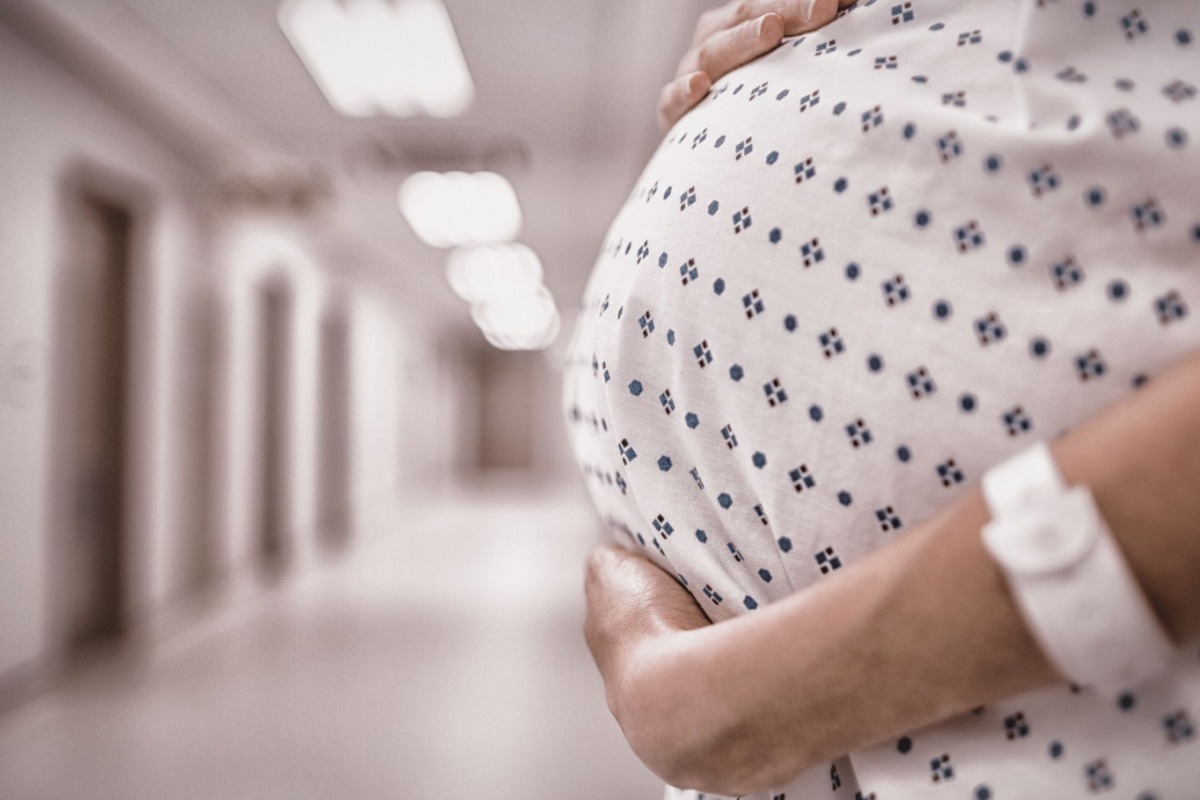Since the beginning of the coronavirus disease 2019 (COVID-19) pandemic, several pregnancy complications and adverse clinical outcomes have been observed in both the mother and fetus following infection with the severe acute respiratory syndrome coronavirus 2 (SARS-CoV-2).
 Study: SARS-CoV-2 Placentitis, Stillbirth and Maternal COVID-19 Vaccination: Clinical-Pathological Correlations. Image Credit: vecttorfusionart / Shutterstock.com
Study: SARS-CoV-2 Placentitis, Stillbirth and Maternal COVID-19 Vaccination: Clinical-Pathological Correlations. Image Credit: vecttorfusionart / Shutterstock.com
Background
Stillbirths and miscarriages have been reported in pregnant women diagnosed with COVID-19. Investigation of the placenta from these stillborn fetuses has revealed the presence of SARS-CoV-2, in addition to markers of necrosis, intervillositis, and fibrin deposition.
Another large-scale cohort study conducted in England reported a high rate of fetal death in those infected with SARS-CoV-2 as compared to uninfected mothers. Based on one population-based study, the U.S. Centers for Disease Control and Prevention (CDC) confirmed the relationship between SARS-CoV-2 infection and stillbirths.
In the current study, researchers discuss the clinical and pathological aspects of the relationship between maternal COVID-19 vaccination, SARS-CoV-2 placentitis, and perinatal death.
Underlying mechanisms of stillbirths from COVID-19
Although the common placental cell type that is susceptible to SARS-CoV-2 infection is syncytiotrophoblast, this virus has also been detected in all cells of the chorionic villi.
Investigation of the placenta of stillbirths associated with COVID-19 has immensely helped understand the reason for fetal demise. These placental studies have reported multiple pathological abnormalities in both liveborn and stillborn babies.
SARS-CoV-2-infected mothers have been found to be at a high risk of placentitis, which is inflammation in the placenta. Mechanistically, massive perivillous fibrin deposition (MPFD), trophoblast necrosis, and chronic histiocytic intervillositis (CHIV) contribute to fetal demise. Importantly, both MPFD and CHIV were rarely found in the placenta prior to the COVID-19 pandemic.
The average SARS-CoV-2 infected placenta exhibited 77.7% tissue damage that induced placentitis. Additionally, many placentas showed 90% destruction of parenchymal cells. This extent of cellular damage inhibits adequate oxygen delivery to the fetus, which might cause fetal death.
This mechanism of fetal death is not similar to intrauterine infections, which are commonly associated with direct damage to fetal somatic organs. Importantly, mothers who were asymptomatic or with mild COVID-19 also had stillbirths.
As the level of SARS-CoV-2 infection in the placenta progresses, severe parenchymal ischemia occurs. Subsequently, fibrin deposition, MPFD, CHIV, and trophoblast necrosis obstruct maternal perfusion in the intervillous space, subsequently causing excessive destruction of the tissue and malperfusion. SARS-CoV-2 placentitis also occurs due to villitis and thrombohematomas, which cause maternal and fetal vascular malperfusion.
Can maternal COVID-19 vaccination prevent stillbirths?
In the early phase of the COVID-19 vaccination rollout, pregnant women were under-vaccinated. This was because most of the clinical studies that evaluated the safety and efficacy of newly developed COVID-19 vaccines excluded pregnant women due to the limited safety data on messenger ribonucleic acid (mRNA) vaccines.
Anti-vaccine misinformation also increased vaccine hesitancy in this group. By May 2021, only 16% of pregnant women received at least one vaccine dose in the U.S.
The emergence and rapid spread of the SARS-CoV-2 Delta variant caused increased severity among pregnant women. During this period, around 20% of unvaccinated pregnant women were critically ill and hospitalized. This led the CDC to recommend urgent vaccination for pregnant women to protect them from severe COVID-19.
Multiple clinical and observational studies have confirmed that mRNA-based COVID-19 vaccines are safe and effective for pregnant women. These studies have indicated that vaccination could also reduce maternal morbidity and mortality due to COVID-19.
COVID-19 vaccines have not been found to affect the placenta nor cause abnormal pathologies, such as trophoblast necrosis, intervillositis, MPFD, villitis, and thrombohematomas. In fact, maternal COVID-19 vaccination has been shown to protect the fetus and newborn by stimulating systemic and mucosal immune responses, thereby reducing viral entry and the incidence of SARS-CoV-2 infection.
COVID-19 vaccination during pregnancy induces the production of maternal antibodies, particularly those targeted against the viral spike protein. This anti-spike immunoglobulin G (IgG) antibodies have been detected in maternal sera, breast milk, as well as infant sera, the latter of which indicates their transfer from the mother to the infant before birth.
According to a CDC report, children of mothers who received COVID-19 vaccines manufactured by Pfizer or Moderna were less likely to be hospitalized due to COVID-19 by 61% in the first six months of age. Maternal COVID-19 vaccination also appears to reduce the rate of stillbirths that occur when the mother is infected with SARS-CoV-2.
COVID-19 vaccination not only reduces viral loads but also decreases vascular and tissue damage. Furthermore, it significantly reduces viral dissemination from the lungs to other organs.
Taken together, the study findings strongly advocate for COVID-19 vaccination for pregnant women due to its potential to reduce stillbirths and placentitis.
Journal reference:
- Schwartz, D. A., Mulkey, S. B., and Roberts, D. J. (2022). SARS-CoV-2 Placentitis, Stillbirth and Maternal COVID-19 Vaccination: Clinical-Pathological Correlations. American Journal of Obstetrics and Gynecology. doi:10.1016/j.ajog.2022.10.001.